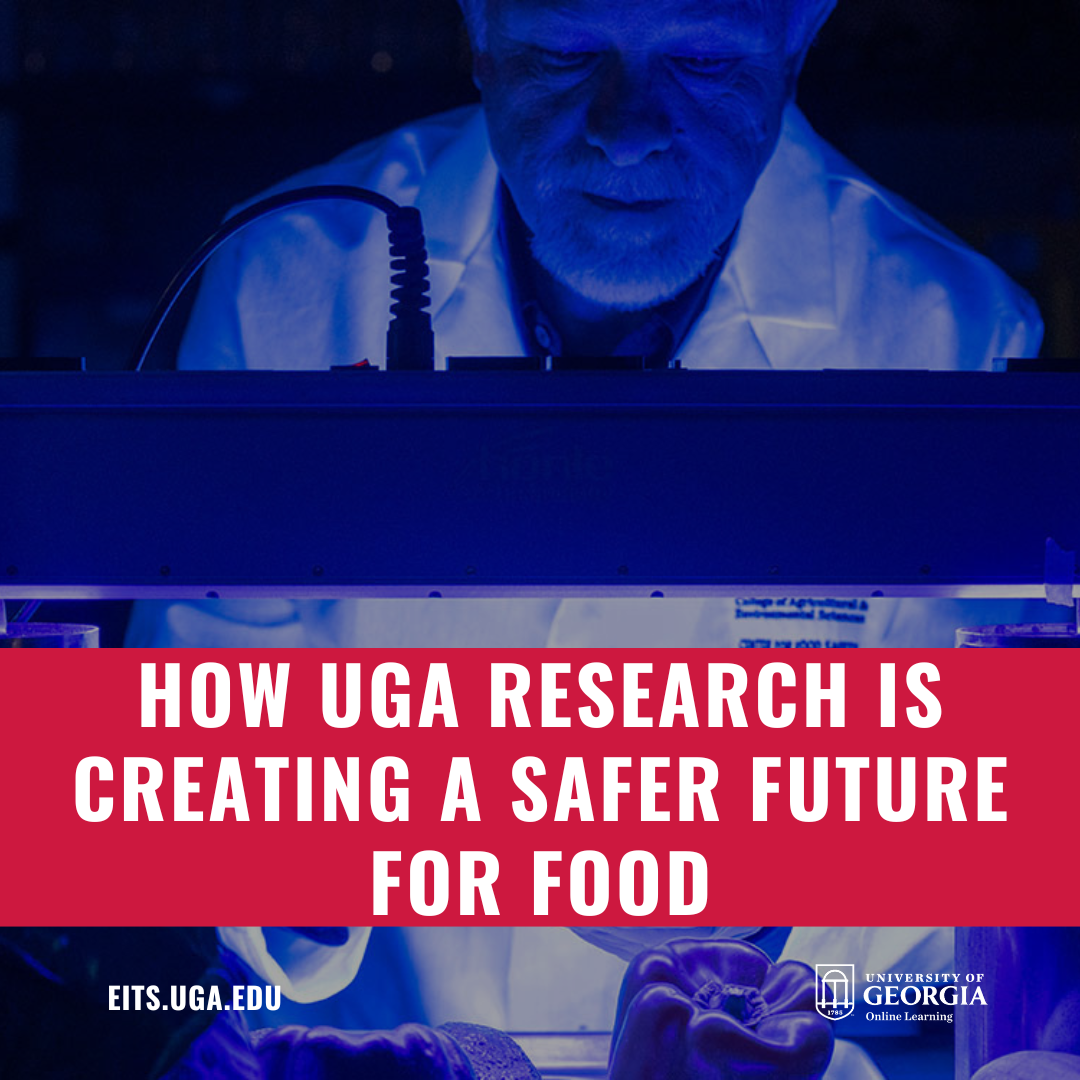How UGA Research is Creating a Safer Future for Food
How UGA Research is Creating a Safer Future for Food
The University of Georgia Center for Food Safety is making strides to create a safer global food chain. Each year around 48 million people in the U.S. get sick from contaminated food or beverages and 3,000 die from foodborne illness. The center houses a team of scientists dedicated to improving food safety through research.
One of the ways they are combating contamination is through antimicrobial blue light (aBL). Currently the technology is used in many ways such as acne treatments and teeth whitening. The LED lights used are cost-effective and work in a manner similar to sunlight. The team’s hopemit to create a low-cost and environmentally safe way to strengthen food safety.
Currently aBL is being used to sanitize difficult to reach areas. The researcher team had an early success by killing Listeria monocytogenes cells, the bacteria that causes Listeria, in liquid cultures with aBL. The team received support from a three-year grant worth $599,900 from the U.S. Department of Agriculture National Institute of Food and Agriculture.
Listeria monocytogenes cells, the bacteria that causes Listeria, in liquid cultures with aBL. The team received support from a three-year grant worth $599,900 from the U.S. Department of Agriculture National Institute of Food and Agriculture.
Antimicrobial resistant pathogens are one of the largest threats to the global food chain. A researcher on the team, Issmat Kassem, has been globally tracking the gene that allows bacteria to resist the antibiotic that is used when no other antibiotic will work, colistin. Bacteria develop resistance to antibiotics when they are exposed to those antibiotics constantly. One of his studies helped the Lebanese government ban the general use of colistin on farm animals to help decrease the number of bacteria that become resistant.
The future of food safety is a blend of big data, such as Kassem’s global tracking data, and microbiology. Experts combine their experiences and understanding to determine what the future of food safety is and how we can get there. From uncovering the likely source of the spread of the global pandemic of Salmonella Enteritidis to applying big data to sanitation to understand tolerances in Listeria, the team of experts at the center are making discoveries and leading a new generation of students to change the future of food safety.
To learn more about the UGA Center for Food Safety and their impressive discoveries and research, read the full article.
If you are interested in a future in food safety and technology, consider exploring our online Master of Food Technology. This program is a non-thesis masters that provides an education that will teach students how to improve food product quality and safety, maximize in-line processing efficiencies and implement good manufacturing practices as well as the opportunity to learn from industry experts and researchers. The deadline for the Fall 2023 start date is May 1, 2023.
